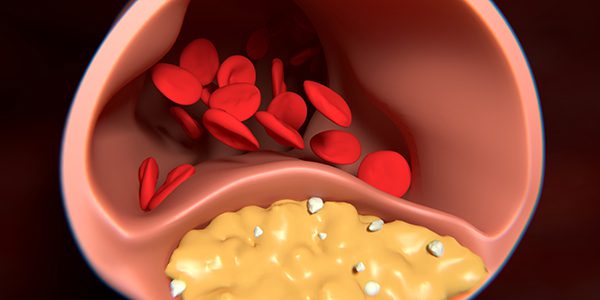Albuterol is a medication typically prescribed for the treatment of respiratory conditions such as asthma and chronic obstructive pulmonary disease. It works by relaxing the muscles in the airways, thereby increasing air flow to the lungs. However, its effects on the respiratory system have led some to consider its potential for off-label use in weight loss. This interest is based on the drug’s ability to stimulate the beta-2 receptors, which can increase metabolic rate and promote fat loss.
Weight loss through pharmacological means is generally undertaken with caution, and albuterol’s use in such a context is not without its risks and limitations. Users must be aware of the recommended usage and dosage, as well as the side effects and precautions associated with albuterol when considering it for weight loss purposes. It’s also important to note that any weight loss regimen should be approached holistically, taking into account the potential interactions with other medical conditions and substances.
Quick Summary
- Albuterol is a bronchodilator primarily used for treating respiratory issues, with some interest in off-label weight loss applications.
- The drug targets beta-2 receptors, possibly aiding fat loss, but should be used cautiously regarding dosage, side effects, and interactions.
- Comprehensive weight management should consider potential drug interactions and individual health conditions.

Albuterol Overview
Albuterol is a medication primarily used to treat breathing difficulties, functioning as a bronchodilator to facilitate easier respiration in conditions like asthma and Chronic Obstructive Pulmonary Disease (COPD).
Bronchodilator Function
Albuterol acts on the smooth muscles of the airways, causing them to relax which widens the air passages (bronchodilation). This process helps to relieve symptoms of wheezing, coughing, and shortness of breath. The onset of its action is relatively rapid, making it a common choice for immediate relief.
Albuterol in Asthma and COPD Treatment
In the treatment of Asthma, Albuterol is often used as a quick-relief or rescue medication to alleviate acute episodes. It is also utilized in managing Chronic Obstructive Pulmonary Disease, where regular usage can help manage persistent symptoms. Albuterol’s effectiveness in these conditions underscores its importance in the treatment regimens for respiratory diseases.
Potential Weight Loss Effects

Albuterol has been investigated for its potential effects on weight loss, primarily through its action on fat cells and enhancement of weight loss efforts during exercise.
Mechanism of Action and Fat Loss
Albuterol is a beta-2 agonist that, when administered, stimulates the beta-2 adrenergic receptors on fat cells. This stimulation leads to fat cell lipolysis, the process by which fat stored in cells is broken down into fatty acids that can be used as energy by the body. There’s evidence suggesting the increased metabolic rate can — theoretically — contribute to fat loss, especially when combined with a calorie-restricted diet.
- Pathway: Beta-2 adrenergic stimulation -> Increased cAMP -> Activated lipase -> Breakdown of triglycerides -> Fatty acids released
Exercise-Induced Weight Loss Enhancement
Research indicates that albuterol may enhance weight loss efforts during exercise, particularly in the context of exercise-induced bronchospasm (EIB). For individuals who experience EIB, albuterol can improve respiratory comfort, which may lead to longer and more intense workouts. These improved workouts could indirectly support weight loss and fat loss through increased energy expenditure.
- Exercise Benefits:
- Reduced symptoms of EIB
- Improved respiratory function
- Potential for longer, more intense exercise sessions
Note to the reader: The use of albuterol solely for weight loss is not approved by regulatory agencies, and it should be taken only under medical supervision for approved indications.
References
Usage and Dosage
When prescribed for weight loss or any other unapproved uses, Albuterol dosing protocols can vary and should only be determined by a healthcare provider. The following outlines proper prescription guidelines and inhaler administration techniques associated with Albuterol use.
Prescription Guidelines
Albuterol, usually available as the branded inhalers Ventolin HFA, ProAir HFA, and Proventil HFA, is a bronchodilator typically prescribed for the treatment of asthma and chronic obstructive pulmonary disease (COPD). The use of Albuterol for weight loss is considered off-label. It is crucial that a doctor assess a patient’s health and medical history before prescribing Albuterol, regardless of its intended use. For asthma treatment, the standard dosage includes:
- Ventolin HFA, ProAir HFA, Proventil HFA: 1 to 2 puffs every 4 to 6 hours as needed.
Patients are advised to seek medical attention if they experience any adverse effects or if their symptoms do not improve.
Inhaler Administration Techniques
Correct administration of the inhaler is essential for optimum drug efficacy. Techniques for using Albuterol inhalers such as Ventolin HFA, ProAir HFA, and Proventil HFA include:
- Shaking the inhaler well before each spray.
- Exhaling completely away from the inhaler.
- Placing the mouthpiece in the mouth and sealing the lips around it.
- Inhaling deeply and slowly while pressing down on the inhaler to release the medication.
- Holding one’s breath for about 10 seconds after inhaling the medication to allow it to settle in the lungs.
- Waiting at least 1 minute between puffs if more than one puff is prescribed.
Side Effects and Precautions

While albuterol is commonly used for its bronchodilator effects, it can lead to a range of side effects. Individuals should be aware of these potential reactions and take appropriate precautions.
Common Side Effects
The use of albuterol is often associated with several side effects. Not all side effects require medical attention, but patients should be familiar with them so they can manage their medication effectively.
- Nervousness or Tremor: A common reaction that may decrease over time as the body adjusts to the medication.
- Headache: May occur in some users but can often be relieved by over-the-counter pain relievers.
- Dizziness: Users might experience dizziness; it is suggested to sit or lie down until this subsides.
- Tachycardia (increased heart rate): Patients may notice a faster than normal heart rate.
- Shakiness: Some individuals might experience shakiness in the hands or other parts of the body.
If these side effects persist or worsen, contacting a doctor is recommended.
Allergic Reactions and Medical Responses
Albuterol can cause severe allergic reactions. Immediate medical attention is required if an individual experiences the following symptoms:
- Hives or Rash: A possible indication of an allergic reaction.
- Swelling: This can occur in the face, lips, tongue, or throat and is a medical emergency if it affects breathing.
- Bronchospasm: Rarely, albuterol might cause paradoxical bronchospasm, which requires prompt medical response.
- High Blood Pressure: A potential serious effect that necessitates doctor consultation.
- Difficulty Breathing: If breathing problems intensify, it’s imperative to seek medical attention.
Users should always inform their healthcare providers about any past allergic reactions to medications, especially if they involve similar compounds to albuterol.
Interactions with Other Conditions and Substances
Albuterol, primarily used for treating respiratory conditions like asthma and Chronic Obstructive Pulmonary Disease (COPD), can interact with other medical conditions and substances, altering its effectiveness and side effects.
Impact on Chronic Conditions
Individuals with chronic conditions such as high blood pressure, diabetes, and a history of arrhythmia should use albuterol with caution. Albuterol can increase heart rate and blood pressure, potentially exacerbating these conditions. For patients with diabetes, monitoring blood glucose levels is essential as albuterol may impact glycemic control.
- High Blood Pressure (Hypertension): May cause an increase in blood pressure levels.
- Arrhythmia: Albuterol can precipitate irregular heartbeats.
- Overactive Thyroid: Can amplify the side effects of albuterol.
Contraindications and Drug Interactions
Albuterol may interact with various medications and substances. Any concomitant use should be consulted with a healthcare provider to ensure safety.
- Caffeine: Can increase side effects of albuterol such as nervousness, heart rate, and insomnia.
- Digoxin: Blood levels of digoxin may be reduced when taken with albuterol.
- Diuretics: Combination can lead to hypokalemia, increasing the risk of adverse cardiovascular effects.
- Antidepressants: MAO inhibitors (Selegiline, Isocarboxazid, Phenelzine) and tricyclics (Amitriptyline, Imipramine, Nortriptyline) can intensify the action of albuterol.
- Beta-blockers (Atenolol, Carvedilol): May negate the effects of albuterol or increase bronchospasm.
- Furosemide: When used with albuterol, there’s a risk of decreased potassium levels in the blood.
| Substance | Interaction with Albuterol |
|---|---|
| Epinephrine | Increased risk of cardiovascular side effects. |
| Linezolid | Potential increase in blood pressure. |
| Monoamine Oxidase Inhibitors (MAOIs) | Risk of hypertensive reactions. |
| Tricyclic Antidepressants | Heightened cardiovascular effects. |
| Beta-blockers | Can reduce albuterol’s effectiveness. |
| Diuretics | Risk of hypokalemia when used concurrently. |
Given the potential for significant interactions, it’s crucial for patients and healthcare providers to manage the use of albuterol carefully in the presence of other conditions and substances.
References
Frequently Asked Questions

This section answers common inquiries regarding the use of albuterol for fat loss, including dosage, administration methods, combination with other substances, comparisons with similar drugs, side effects, and effects on appetite.
What is the recommended dosage of albuterol for fat loss?
The recommended dosage of albuterol for fat loss varies depending on medical advice and individual conditions. However, they typically start at 2 mg taken three to four times per day. It’s essential to consult a healthcare provider before starting any regimen for weight loss.
How should albuterol be administered for maximum weight loss benefits?
Albuterol should be administered orally in tablet form or through inhalation for weight loss purposes. Proper administration is critical, and following a doctor’s guidance ensures the best outcome.
Can albuterol and caffeine be combined to enhance weight loss, and what are the implications?
Combining albuterol with caffeine might increase fat loss effects, but it also raises the risk of side effects such as increased heart rate and blood pressure. Users should approach this combination cautiously and only under medical supervision.
How do the effects of salbutamol compare with clenbuterol in terms of fat loss?
Salbutamol (albuterol) and clenbuterol both stimulate the beta-2 receptors, promoting fat loss. However, clenbuterol’s effects are more potent and longer-lasting, making it a controversial and riskier choice for weight loss.
What are the common side effects associated with using albuterol for weight loss?
Common side effects of using albuterol for weight loss include jitteriness, heart palpitations, headaches, and muscle tremors. Long-term use can lead to more serious cardiovascular issues.
What appetite changes can be expected when taking albuterol for bodybuilding purposes?
An individual taking albuterol for bodybuilding might experience reduced appetite as a side effect, which can contribute indirectly to weight loss. However, not all users report significant changes in appetite.
Dr. Grant Fourie, a specialist in male hormones, is based in Cape Town, South Africa. He provides comprehensive treatments for conditions related to low testosterone, such as erectile dysfunction, fatigue, and mood changes. His methods include hormone replacement therapy and other modern treatment options.
Contact me via email or phone to book personal appointment in my clinic: The Village Square, Cape Town - South Africa



